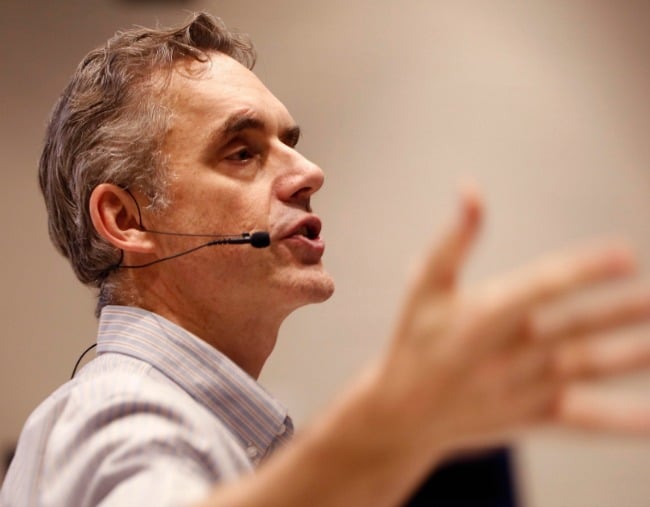
Content warning: This story deals with the subject of suicide, and many be triggering for some readers.
As a professor, clinical psychologist, author and public speaker, Jordan Peterson often speaks to rooms full of hundreds, if not thousands of people.
He talks about agency, truth, purpose and meaning, and while controversial, Peterson’s skill appears to be in bringing complex discussions to an audience prepared to grapple with them. They want to engage in conversations about identity, and beliefs, and ethics – and they like Peterson’s ‘no bullsh*t’ approach. They know that if they ask him a hard question, he’ll have a considered, passionate answer.
But on June 15, during a talk in Indianapolis, Peterson was asked a question he presumably hasn’t been asked before.
“I plan on taking my own life very soon,” the questioner, Chad, had asked via an online submission. “Why shouldn’t I?”
“OK, well, this is very serious,” Peterson responded. “I don’t know if I should address it because I’m somewhat tired, but I’ll give it a shot because it’s important, and it’s a very serious, troublesome question.”
These were the four reasons he gave.
1. “You will devastate the people you leave behind.”
“You have to think very carefully through the consequences of that for other people,” Peterson said.
“I have clients in my clinical practice who have never recovered from the suicide of a family member. Decades later, they are still torturing themselves about it. So that’s what you leave behind.
“The problem is, you might be dreaming out that. Maybe you think life is beset against you. Maybe you’re thinking people deserve to suffer for the misery they have imposed upon you.
Who is Jordan Peterson, and why should we care? Post continues after audio.
“But I would say: Think very, very carefully before you go down that route. It’s a terrible thing to leave people with. And so, part of the reason suicide has been illegal in societies, is because it absolutely devastates the people you leave behind.
“You may just absolutely wipe them out in a way they may never recover from. You cannot fix someone’s suicide. You’re stuck with it.
“That’s a hell of a thing to leave someone with.”
2. “You owe it to yourself to look at every possible alternative.”
“There are treatments for depression, and many of them work,” Peterson said. “For some people, antidepressants work.
“They don’t work for everyone. I’m not claiming they are a panacea, but they certainly beat the hell out of suicide. Even if they have some negative side effects — and sometimes they do, quite frequently they do — the negative side effects aren’t fatal.
“Don’t give up hope and do something final before you’ve explored all possible options.
“If you haven’t talked to a psychologist, talked to a psychiatrist, you haven’t tried antidepressants, you haven’t revealed to your family that this is how you’re feeling, then you owe it to yourself and them to explore any possible avenue before you take a final step.”

Top Comments